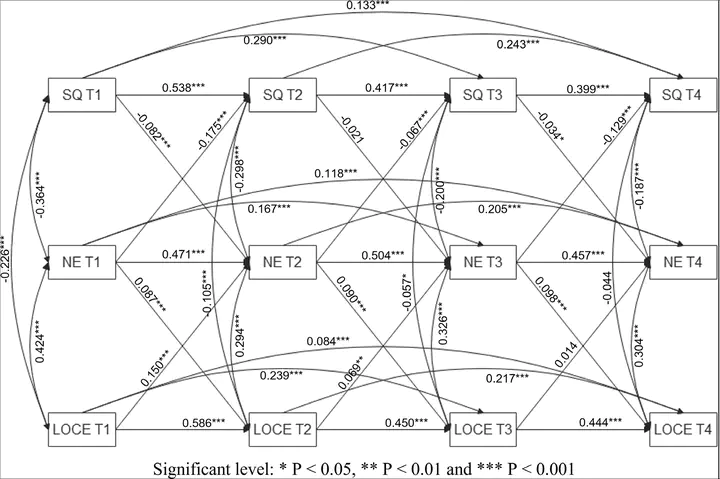Exploring the bidirectional relationships between night eating, loss of control eating, and sleep quality in Chinese adolescents: A four-wave cross-lagged study

Abstract
Objective: This study examined the bidirectional relationships between sleep quality, loss of control (LOC) eating, and night eating among Chinese adolescents using longitudinal data over an 18-month study period. Method: Four-waves of data measurement (Times 1-4), at 6-month intervals, were conducted with 2566 adolescents aged 11 ~ 17 years at baseline. A set of questionaries were used to assess night eating, LOC eating, and sleep quality at each wave of data collection. Cross-lagged models were applied to analyze the bidirectional relationships among night eating, LOC eating, and sleep quality. Results: Results indicated that higher night eating scores consistently predicted poorer sleep quality and higher LOC eating scores at Time 1, 2, and 3. Furthermore, poorer sleep quality predicted higher night eating scores at Time 1 and Time 3, and higher LOC eating scores predicted higher night eating scores at Time 1 to Time 2. Discussion: These findings highlight that night eating, LOC eating, and sleep quality were interrelated across time among Chinese adolescents. Improving sleep quality and reducing LOC eating might be promising in the prevention of night eating in adolescents. Similarly, reducing night eating might be promising in improving sleep quality and reducing LOC eating in adolescents.